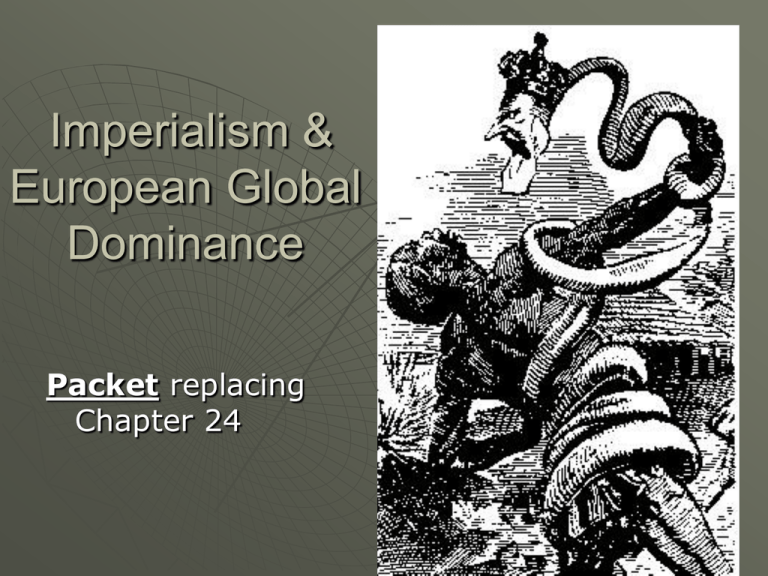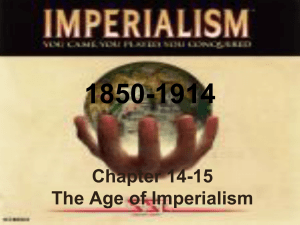Imperialism & European Global Dominance Packet
advertisement

Imperialism & European Global Dominance Packet replacing Chapter 24 Patterns of Imperialism 1700-1850 • Trade company policy preferred profits rather than land • Distance & slow communication allows for trade companies to freelance • Little/no influence on local culture • Key = economic domination of natives Patterns of Colonialism 1850-1914 • Innovations drive new push for land acquisition • Justified… Economically Culturally Politically • Key = political domination of natives TROPICAL DEPENDENCIES • Direct rule = • Indirect rule = Java 1700-1850 Dutch in Java: early prototype for land acquisition typical after 1850 Little European cultural influence 1850-1914 Dutch Culture System • Greater impact on native culture Vietnam 1700-1850 Societal divisions yield French cultural influence 1850-1914 French establish Indochina • Greater impact on native culture India: 1700-1850 Mughal weakness & social divisions spurred British influence • Sepoys Corruption & British domestic reforms yield heavier hand Pivotal India: 1850-1914 Sepoy Rebellion brought colonization Economic dependence strengthened Cultural reform emphasized • Nationalism Africa: 1700-1850 Slave trade dependence Legitimate trade …yet politically independent Africa: 1850-1914 Berlin Conference • Political control utilized societal divisions Belief in white supremacy shaped interactions • Role of missionaries Economic dependence strengthened Question Slide In what ways was Java a prototype? Compare colonialism in India & Africa. SETTLER COLONIES • Characterized by conflict between natives, settlers, & colonial officials South Africa 1700-1850 Characterized by tension b/t: • Boers • Natives • British 1850-1914 Land conflict from Boers moving inland Diamonds & gold draw British to interior New Zealand 1750-1850 Maori culture corrupted at first… • Firearms …but soon adapted to Western culture 1850-1914 Maori disrupted… …but adapted to Western culture, again WHITE DOMINIONS • Extensions of Western culture Canada Australia United States: 1750-1850 Extension of West but independent Inspirational but not powerful United States: 1850-1914 Expands power after Civil War & industrialization Latin America • Spanish-American War = • Panama Canal = Hawaii Global Connections Implications • Scientific advances catapult the West Creates new mindset in West—a Godgiven right to colonize •Western Europe joined by U.S., Japan, Russia as industrial nation seeking territory

